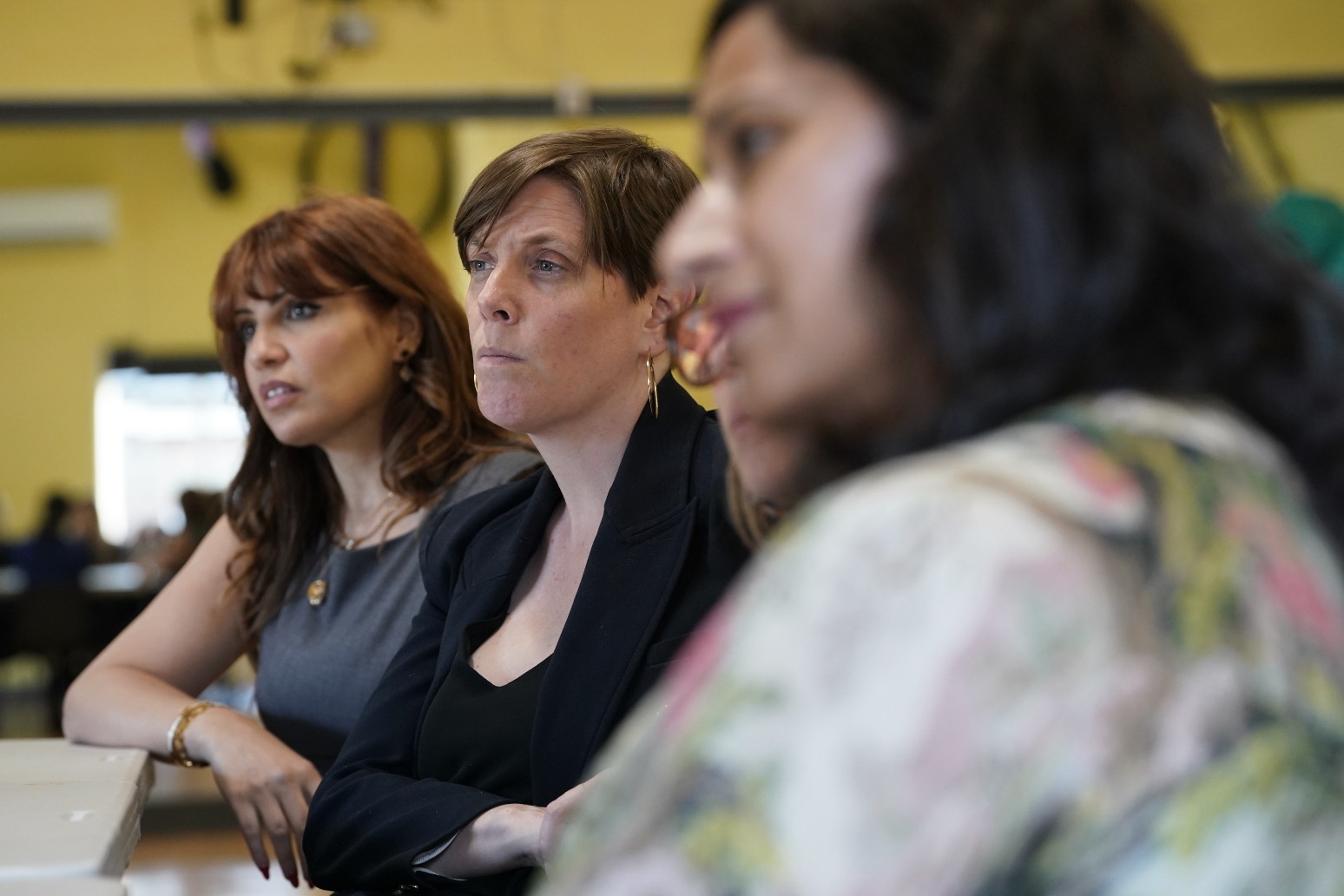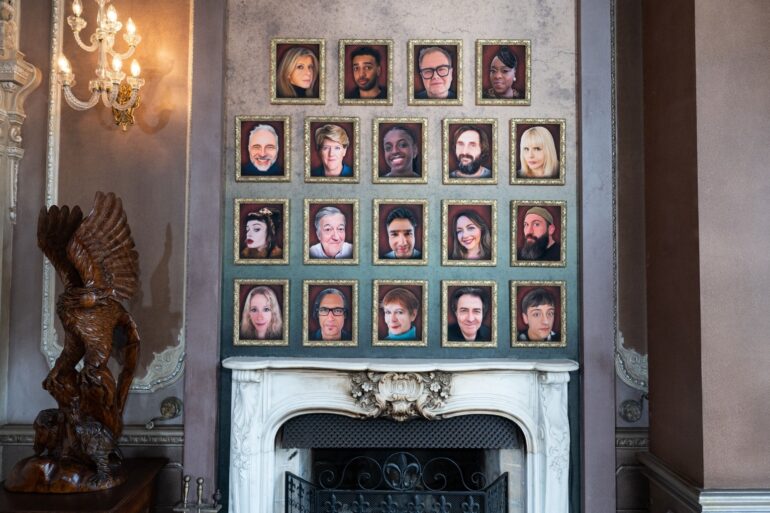-
 play_arrow
play_arrow
Kl 1 Radio Local radio for west Norfolk
-
 play_arrow
play_arrow
KL DISCO KL Disco Playing Disco Music from the 70's onwards.24/7
-
 play_arrow
play_arrow
KL COUNTRY KL COUNTRY Playing New and Classic Country Music 24/7
-
 play_arrow
play_arrow
KL ROX KL ROX The best of New and Classic Rock.24/7
-
 play_arrow
play_arrow
KL SUMMER Summer Vibes 24/7 from KL1 Radio across West Norfolk
-
 play_arrow
play_arrow
KL CLASSICAL Your Symphony Starts Here
-
 play_arrow
play_arrow
KL CHILL Just Chill!
-
 play_arrow
play_arrow
KL POP The Best POP Hits all day Long!
-
 play_arrow
play_arrow
KL XTRA KL XTRA
music_note

The first wave of police forces will start embedding domestic abuse specialists in their 999 control rooms early next year to stop emergency services missing opportunities to save women’s lives.
The move is part of “Raneem’s Law”, named after Raneem Oudeh, to transform the way the police handle cases of violence against women and girls.
The Home Office said the Government will fund the pilot in targeted police forces from early 2025, but did not say how many forces would be involved in the initial rollout.
Ms Oudeh, 22, and her mother Khaola Saleem, 49, were murdered by Ms Oudeh’s ex-partner in 2018.
Four years later, an inquest into their deaths found mistakes made by West Midlands Police had “materially contributed” to their deaths.
On the night they were killed, Ms Oudeh had called West Midlands Police four times to register concerns for her safety, and the force had previously responded to 10 domestic abuse incidents linked to the case.
Five officers were disciplined over the failures.
Nour Norris, Ms Oudeh’s aunt and a campaigner, joined Home Secretary Yvette Cooper and safeguarding minister Jess Phillips to meet 999 control handlers during a visit to Kent Police’s Coldharbour Police Complex in Aylesford, Kent, on Thursday.
Police showed them an emergency response video call – known as rapid video response – which officers are using as part of efforts to ensure that victims get a fast response and are referred to support services as quickly as possible.
In that example, police said the woman who called had said the alleged perpetrator was not home so it was deemed safe to respond with a video call rather than a home visit.
Raneem’s Law will be brought into effect through national guidance that police will be required to follow.
Ms Norris said: “Raneem’s Law will ensure that domestic abuse specialists are present in 999 control rooms so victims’ calls for help are taken seriously and save lives by making sure no warning signs are ignored, unlike in Raneem’s story.
“I am deeply proud that this Government has listened and acted quickly to make Raneem’s Law a reality.
“Their commitment to addressing domestic violence has shown me that change is possible when we refuse to stay silent.”
Ms Cooper said: “Victims of appalling domestic abuse need to know that the police will be there for them.
“Today’s measures are the start of this new Government’s mission to halve violence against women and girls in a decade.”
Ms Phillips said: “Embedding domestic abuse specialists in 999 control rooms and rolling out new protective orders to pilot forces and courts across the country are both huge steps towards the best response for victims possible.”
A domestic abuse protection order pilot is to be launched in November that will place tougher sanctions on domestic abusers if they fail to stay away from their victims.
Perpetrators will be legally required to inform the police of any name or address changes under the new orders.
The orders will also allow electronic tagging to be imposed and assessments for behaviour change programmes to be ordered.
There will also be no maximum duration for these orders, unlike current powers police have to order abusers to not make contact with or go within a certain distance of their victim, which expire after 28 days.
Breaching one of these new orders will be a criminal offence, punishable by up to five years in prison.
They can be applied for all forms of domestic abuse, including violence, stalking and controlling behaviour.
Family and civil courts as well as local authorities, charities and social services will be able to apply the orders – rather than only police and criminal courts.
Abigail Ampofo, interim chief executive of Refuge, said: “Whilst we broadly support the raft of measures announced by the Home Office, including specialists in 999 control rooms, we need to see far more detail on how these plans will be implemented and how staff will be safely recruited, vetted and most importantly trained for this pilot scheme due to be implemented in early 2025.”
Ms Ampofo said Refuge had been waiting “with bated breath” for the rollout of domestic abuse protection orders first announced by the previous government and is pleased the pilot is getting up and running.
She added: “However, we know there are a myriad of issues when it comes to police using their powers to protect survivors and hold perpetrators to account, so often survivors tell us that the police don’t act on breaches of these orders, and they are often worth ‘little more than the paper they are written on’.”
Almost 100 domestic abuse-related offences were recorded by the police every hour on average last year, the Home Office said.
Published: by Radio NewsHub

Similar posts
Upcoming shows

Paul Baker – KL1 Breakfast
7:00 am - 10:00 am

Chris Fisher – KL1 Mornings
10:00 am - 1:00 pm

Tim Lee – KL1 Afternoons
1:00 pm - 4:00 pm

Richard Dix – KL1 Drive
4:00 pm - 7:00 pm

80’s ’til 8
7:00 pm - 8:00 pm
-

Linnets budget could be cut by ‘best part of 30%’ next season

McArthur hails landmark moment after Holyrood vote on assisted dying

Stephen Fry Celia Imrie and Paloma Faith among Celebrity Traitors contestants

Free flowers up for grabs – and could be gone within an hour

Popular circus returns tomorrow for brand new show
Message Us
Copyright The Mediasite UK - 2025



